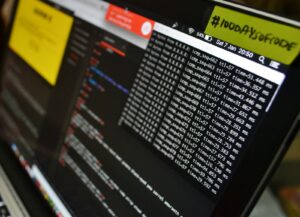AI meets HR in an AI-driven workforce
96 AI meets HR in an AI-driven workforce View this email in your browser The weekly newsletter of the Business of Tech, giving you new insights into the...
More from NewsletterMore posts in Newsletter »
More from Podcast StoryMore posts in Podcast Story »
- U.S. Q1 GDP Growth Slows to 1.6%, But Consumer Spending Shows Resilience
- CISA’s Latest AI Guidelines: Managing Risks and Harnessing Opportunities in Critical Infrastructure
- Mosyle Launches Fuse MSP for Streamlined Apple Device Management, Offering High Commissions for MSPsMosyle Launches Fuse MSP for Streamlined Apple Device Management, Offering High Commissions for MSPs

- FCC Votes to Restore Net Neutrality, Reclassifying Broadband as Essential Service
- AI’s Role in the Workplace: Enhancing Productivity Without Displacing Jobs, According to New Study

 Unlock with Patreon
Unlock with Patreon


